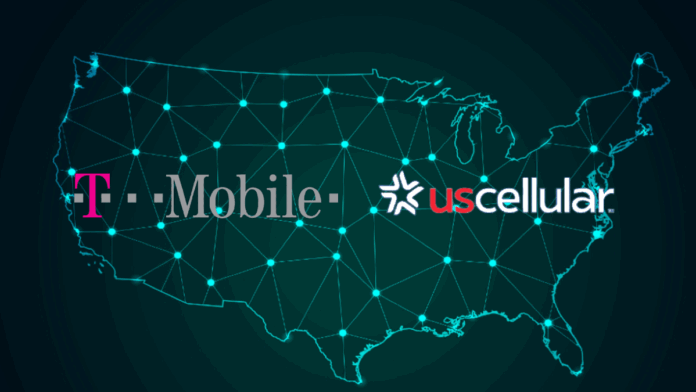UScellular, now renamed Array Digital Infrastructure, retains ownership of its 4,400 towers and about 70% of its total spectrum portfolio
In sum – what to know:
T-Mobile completes the $4.4B acquisition – The telco giant now owns UScellular’s wireless business, gaining customers, stores, and spectrum.
UScellular exits retail wireless – The company has rebranded as Array Digital Infrastructure, retaining its towers and most of its spectrum.
Consolidation concerns – The DOJ approved the deal despite consolidation concerns, citing UScellular’s inability to compete at scale.
T-Mobile US has officially closed its $4.4 billion acquisition ($4.3 billion after adjustments) of UScellular’s wireless business, gaining customers, stores, and approximately 30% of the regional carrier’s spectrum holdings. The deal, first announced in May 2024, was finalized through a mix of $2.6 billion in cash and $1.7 billion in assumed debt.
A changing role for UScellular
UScellular, now renamed Array Digital Infrastructure, retains ownership of its 4,400 towers and about 70% of its total spectrum portfolio. T-Mobile has entered a 15-year master license agreement covering more than 2,000 of those towers, along with extended leases on 600 more — ensuring continued infrastructure access.
“The closing of the sale of UScellular’s wireless operations and certain spectrum assets to T-Mobile marks an important milestone in the Company’s 42-year history,” said Walter Carlson, TDS president and CEO, in a press statement. “The successful completion of this transaction has delivered significant shareholder value and has positioned the continuing Array business with a strong balance sheet and a tower infrastructure business poised for growth and value creation.
This pivot marks UScellular’s exit from the retail wireless market and a refocus on being a tower and spectrum asset operator.
DOJ balances market power with reality
The move marks a dramatic reshaping of the U.S. wireless market and comes just weeks after the Department of Justice cleared the transaction, despite initial concerns about market concentration and competition.
“UScellular simply could not keep up,” said Assistant Attorney General Gail Slater in a statement. “Consumers would benefit from a stronger T-Mobile.”
While the DOJ acknowledged concerns over consolidation — especially the continued dominance of the “Big Three” (AT&T, Verizon, and T-Mobile) — Slater argued the deal was necessary in light of UScellular’s declining competitiveness. The regional carrier was losing customers, had higher pricing, and lacked the scale to compete effectively.
“We stand at a pivotal moment for the wireless industry,” Slater said. The top three operators now account for more than 90% of the country’s 335 million mobile subscriptions.
Slater also warned of the long-term risks of ongoing spectrum consolidation, pledging that the DOJ would “use its enforcement authority” to block future deals that undermine competition.
Analyst: Dish still struggling as fourth option
Policy advisor Blair Levin of New Street Research echoed the DOJ’s rationale, telling RCR Wireless News that UScellular’s days as a viable competitor were effectively over.
“Their pricing was higher than the big three … The most likely outcome is EchoStar [Dish] selling spectrum to the big three,” he said, expressing skepticism over Dish’s ability to survive as a fourth national operator.
While Dish Network insists it can succeed “given the opportunity,” the path forward remains “narrow and treacherous,” Levin said. “The most likely outcome is EchoStar [or Dish] selling spectrum to the big three. We recognize that the DOJ doesn’t want this outcome, but they don’t have jurisdiction over spectrum sales. This is the domain of the FCC, and the FCC is very comfortable with three national carriers.”
For T-Mobile, the work of integrating UScellular’s network, customer base, and spectrum begins. While the DOJ concluded the deal wouldn’t significantly harm rural coverage, the merger raises new questions about competition, innovation, and the future of a viable fourth carrier in the U.S. mobile market.

